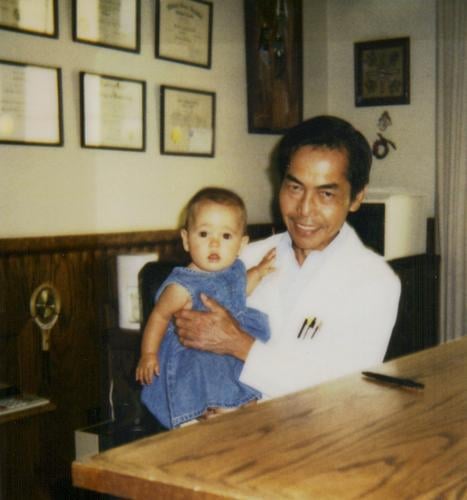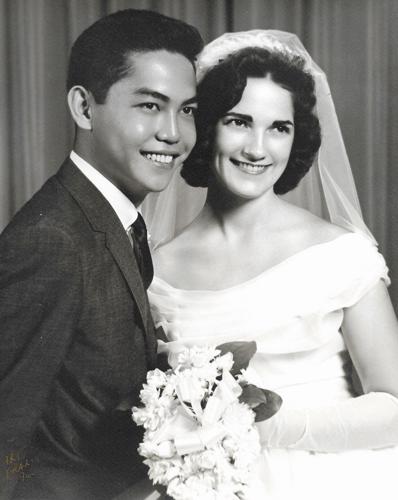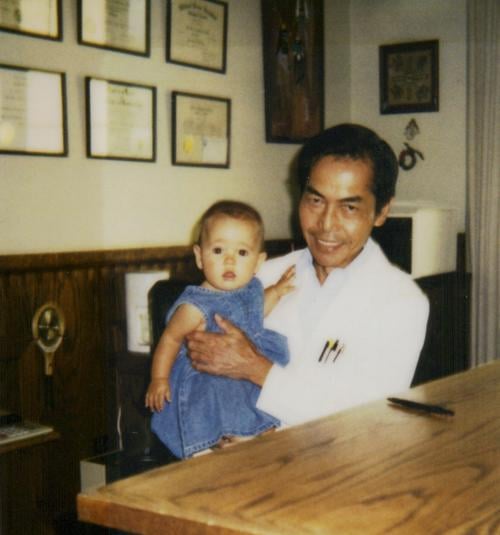Dr. Reuben G. Wagelie, a native of the Philippines who went on to medical school in his teens and finished his studies as a pediatrician and allergist in the United States, died Sept. 27 at age 87. He founded Allergy & Asthma Associates of Tucson in 1982.
Wagelie died after complications from a fall and was in hospice at home — a home filled with family spending time with Wagelie up to the end, said daughter Dr. Amy Wagelie-Steffen, medical director and president of the clinic, who along with staff, will continue her father’s legacy.
Sandi Wagelie, a wife to Reuben for 61 years, his five daughters, four son-in-laws, eight grandchildren and two great-grandchildren, spent the final weeks with the family’s patriarch doing what he enjoyed. Some played his favorite songs on their musical instruments, including piano, cello, violin and guitar. Songs included “Blackbird”, “The Swan”, and “Vivaldi Concerto in A minor.” Others watched New York Yankees baseball games with him, and all leaned on each other.

Reuben and Sandi Wagelie in their wedding photo, September 23, 1960.
Wagelie loved a house full of laughter and music. He also loved playing tennis, mahjong, running and gardening.
“He served tens of thousands of patients all over Tucson and Southern Arizona, taking to the roads to broaden the practice in the early days,” said Wagelie-Steffen on the clinic’s website. She said her mother was a nurse and worked alongside her father for years. “He soon found that the drive to Safford, Nogales, Sierra Vista, Douglas, Morenci and other places was so peaceful and the patients were so kind, he didn’t want to give it up,” said the daughter.
“He and my mom went together for several years and had impromptu adventures after clinic in the Chiricahuas or Madera Canyon,” recalled Wagelie-Steffen. The elder Wagelie opened the practice in Tucson years after he was drafted into the Army during the Vietnam War and completed his service at Fort Huachuca, getting to know Southern Arizona.
When a grandson became Reuben and Sandi’s chauffer on drives to cities and towns in Southern Arizona, Reuben shared stories and life lessons. Reuben was born Sept. 9, 1934 in Cavite City, Philippines. His parents earned a living as school teachers and cared for three children. Reuben was 7 years old when the Japanese invaded the Philippines after the attack on Pearl Harbor, recalled Wagelie-Steffen of her father’s stories.
The family’s home was taken over by a high-ranking Japanese officer, and the officer forced the family to live in a shed in the backyard. “My great-grandfather was actually sent to a prison camp in Southern Philippines for three years,” said Wagelie-Steffen. When the war was over, Reuben received high scores in government tests because his parents kept up his schooling, and he graduated from high school at age 16. He then began taking combined undergraduate courses and also classes in medical school at the University of the Philippines.

Reuben G. Wagelie, MD on move-in day at Allergy Associates of Tucson in 1982.
“We joked that he was the Filipino ‘Doogie Howser,’” said Wagelie-Steffen of her father who in 1956 traveled to Chicago to do his internship and residency in pediatrics at Michael Reese Hospital. “When he was chief resident, he met my mom who was a new nurse at Michael Reese. He caught her attention because unlike the other pediatricians, he would change a baby’s diaper if he noticed it was dirty during rounds,” said Wagelie-Steffen.
Wagelie married Sandi Lightfoot in 1960, and the couple moved to her hometown of Beloit, Wisconsin, where Wagelie practiced general pediatrics. But, he became fascinated with the immune system and allergic disease because earlier during his residency in Chicago he had an anaphylactic reaction to aspirin and nearly died, said his daughter.
At the time, the pathophysiology of anaphylaxis was largely unknown, and doctors did not know how to treat the reaction, explained Wagelie-Steffen. Her father completed a fellowship in allergy/immunology at Baylor University College of Medicine, which is affiliated with Texas Children’s Hospital in Houston. Then Wagelie was hired as a clinical professor in pediatrics and allergy at the University of the Philippines College of Medicine, and he and his family lived there for one year before returning to the United States.

Amy Wagelie-Steffen
Wagelie-Steffen said her parents supported their daughters through their various careers, including education, chef, landscape architect, and working for a big-rig trucking school. “When I finally got into medical school, he gave me a little gift — a watercolor of a branch budding off a tree with a quote written underneath: ‘Why not go out on a limb? That’s where the fruit is.’” recalled Wagelie-Steffen. “I will always remember he taught us to work hard, be confident and take some risks because the fruits of your efforts will be worth it.”
“He also reminded me at the end of his life that “medicines are powerful things, but the most important patient treatment is simply how you treat them — with kindness, respect, attention, and honesty.”
Services for Wagelie will be private.








